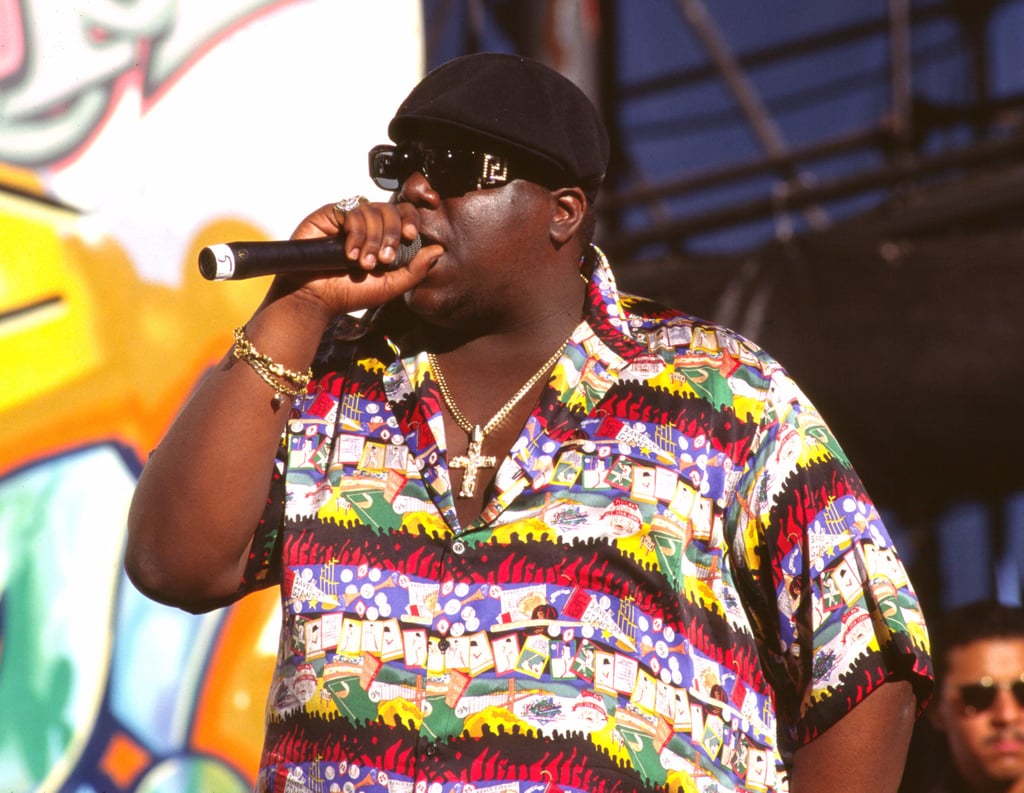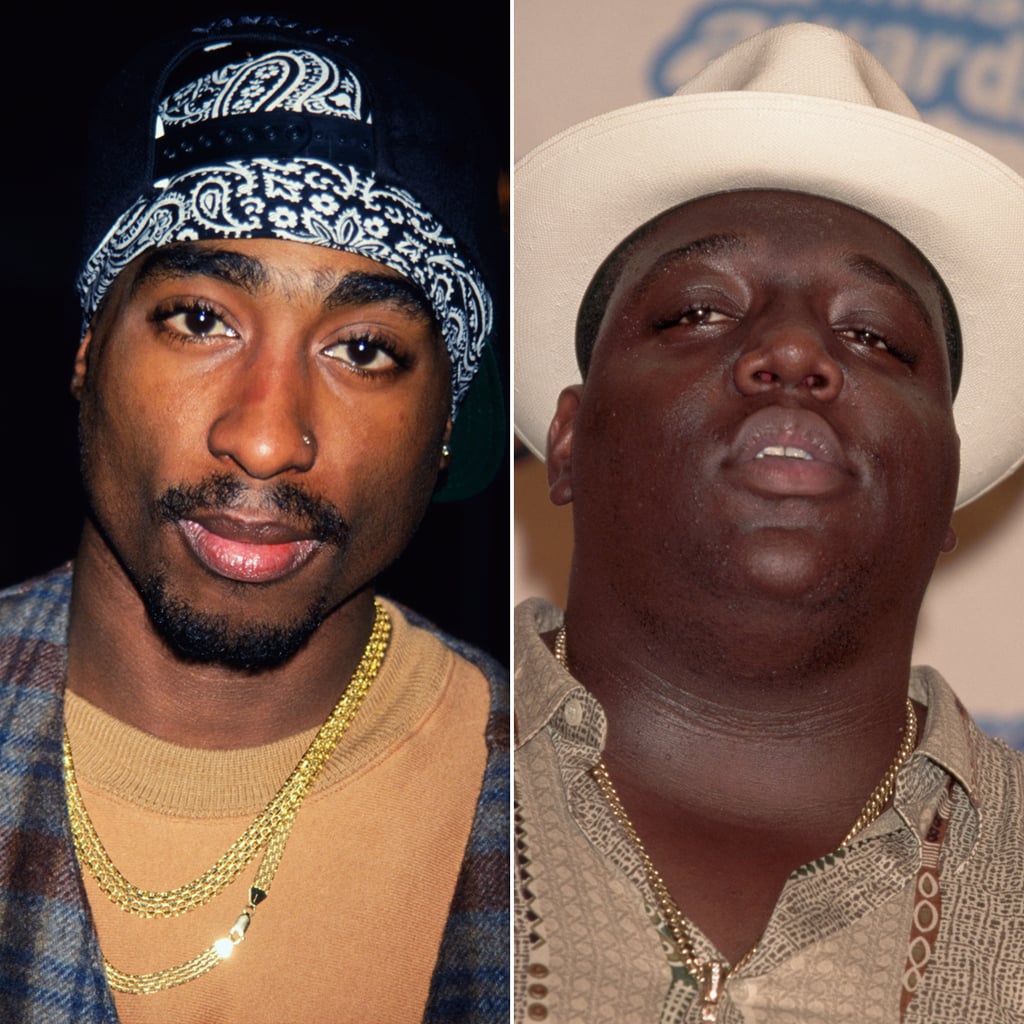When Did Biggie Die? Exploring The Life And Legacy Of The Notorious B.I.G.
When did Biggie die? That’s the question many still ask even today, and it’s a story filled with tragedy, talent, and untold potential. The death of The Notorious B.I.G., or Biggie Smalls as he was also known, remains one of the most shocking moments in hip-hop history. On March 9, 1997, the world lost an icon who redefined the genre with his lyrical prowess and storytelling ability. But before we dive into the details of his untimely passing, let’s take a moment to appreciate the life he lived and the mark he left on music culture.
Biggie wasn’t just a rapper; he was a storyteller, a poet, and a voice for the streets of Brooklyn. His music spoke to millions, transcending geographical and cultural boundaries. From his breakout hit "Juicy" to his iconic album "Ready to Die," Biggie’s music captured the struggles and triumphs of life in the inner city. It’s this authenticity that made him a legend.
But the story doesn’t end with his death. In fact, it’s just the beginning of understanding the impact he had on the music industry and the lives of his fans. So, buckle up, because we’re about to take a deep dive into the life, legacy, and the circumstances surrounding the question, "When did Biggie die?"
Table of Contents
- Biography of Biggie Smalls
- Early Life and Rise to Fame
- Music Career and Legacy
- The "Ready to Die" Album
- The East Coast vs. West Coast Rivalry
- When Did Biggie Die? The Mysterious Circumstances
- Impact on Hip-Hop Culture
- Conspiracy Theories Surrounding His Death
- Tributes and Memorials
- Conclusion: Remembering Biggie
Biography of Biggie Smalls
Before we get into the details of when Biggie died, let’s take a step back and learn more about the man behind the music. Christopher George Latore Wallace, better known as The Notorious B.I.G., was born on May 21, 1972, in the Bedford-Stuyvesant neighborhood of Brooklyn, New York. Growing up in one of the toughest neighborhoods in the city, Biggie’s life was shaped by the harsh realities of poverty, crime, and drugs.
Despite these challenges, Biggie had a natural talent for rhyming and storytelling. His big frame and deep voice made him stand out in the crowded world of hip-hop, earning him the nickname "Biggie Smalls." By the early 1990s, he had caught the attention of Sean "Puffy" Combs, who signed him to his label, Bad Boy Records. This marked the beginning of a meteoric rise that would change the face of hip-hop forever.
Key Facts About Biggie Smalls
| Full Name | Christopher George Latore Wallace |
|---|---|
| Birthdate | May 21, 1972 |
| Place of Birth | Brooklyn, New York |
| Death Date | March 9, 1997 |
| Cause of Death | Drive-by shooting |
Early Life and Rise to Fame
Biggie’s journey from the streets of Brooklyn to the global stage is nothing short of inspiring. As a kid, he struggled with academics but found solace in music. By the late 1980s, he was already making waves in the local rap scene with his unique flow and vivid storytelling. His breakout moment came when he recorded the demo track "Who Shot Ya?" which caught the attention of Puff Daddy.
Signing with Bad Boy Records was a game-changer for Biggie. It gave him the platform he needed to showcase his talents to the world. His debut album, "Ready to Die," released in 1994, became an instant classic, featuring hits like "Gimme the Loot" and "One More Chance." The album’s success cemented Biggie’s place in hip-hop history and set the stage for his legendary status.
Music Career and Legacy
Biggie’s music was a reflection of his life experiences. He wasn’t afraid to talk about the struggles he faced growing up in Brooklyn, but he also celebrated the victories and the good times. Tracks like "Juicy" became anthems for anyone who had ever dreamed of making it big despite the odds stacked against them.
But Biggie wasn’t just a rapper; he was a cultural icon. His influence extended beyond music, inspiring fashion trends, movies, and even other artists. His collaborations with Puff Daddy, Mase, and Lil Kim helped define the sound of 1990s hip-hop. Even after his death, his music continued to inspire new generations of fans.
The "Ready to Die" Album
Released in 1994, "Ready to Die" is often regarded as one of the greatest hip-hop albums of all time. It showcased Biggie’s ability to weave intricate stories into his lyrics, creating a vivid picture of life in the inner city. The album’s production, handled by Puff Daddy and others, was groundbreaking, blending soulful samples with hard-hitting beats.
Tracks like "Things Done Changed" and "Machine Gun Funk" highlighted Biggie’s versatility as an artist. The album not only established him as a major player in the music industry but also set the bar high for future artists. It’s no wonder that "Ready to Die" remains a staple in hip-hop history.
The East Coast vs. West Coast Rivalry
One can’t talk about Biggie’s life without mentioning the infamous East Coast vs. West Coast rivalry. In the mid-1990s, tensions between rappers from the East Coast and the West Coast reached a boiling point. Biggie and Tupac Shakur, two of the biggest names in hip-hop at the time, became the faces of this feud.
The rivalry was fueled by a combination of personal differences, business disputes, and media sensationalism. Tracks like "Hit 'Em Up" by Tupac and "Who Shot Ya?" by Biggie further escalated the tension. While both artists denied any direct involvement in the feud, the rivalry became a defining moment in hip-hop history.
When Did Biggie Die? The Mysterious Circumstances
Now, let’s address the question that’s been on everyone’s mind: when did Biggie die? On the night of March 9, 1997, Biggie was attending a music industry party in Los Angeles to celebrate the Soul Train Music Awards. As he left the event, his convoy was ambushed by an unknown assailant who opened fire on his vehicle. Biggie was critically wounded and later died at a nearby hospital.
The circumstances surrounding his death remain shrouded in mystery. Despite numerous investigations and theories, the case has never been solved. Some point to the East Coast-West Coast rivalry as a possible motive, while others believe it was a personal vendetta. Whatever the truth may be, Biggie’s death left a void in the music world that has yet to be filled.
Key Details About Biggie’s Death
- Date: March 9, 1997
- Location: Los Angeles, California
- Cause: Drive-by shooting
- Status: Unsolved
Impact on Hip-Hop Culture
Biggie’s death had a profound impact on the hip-hop community. It served as a wake-up call for many artists who had been caught up in the rivalry. The loss of such a talented artist at the height of his career was a reminder of the dangers of violence and the importance of unity.
Even today, Biggie’s influence can be seen in the music of countless artists. His ability to tell stories through his lyrics has inspired a new generation of rappers. From Jay-Z to Kendrick Lamar, many have cited Biggie as a major influence on their careers.
Conspiracy Theories Surrounding His Death
Over the years, numerous conspiracy theories have emerged regarding Biggie’s death. Some suggest that it was orchestrated by members of the West Coast hip-hop community, while others believe it was a government plot. The lack of concrete evidence has only fueled these theories, keeping the mystery alive.
One of the most popular theories involves Suge Knight, the former CEO of Death Row Records. Some believe that he was involved in the murder due to his involvement in the East Coast-West Coast feud. While these theories remain unproven, they continue to captivate the public’s imagination.
Tributes and Memorials
In the years since his death, Biggie has been honored in numerous ways. From street names to statues, his legacy continues to live on. Artists like Jay-Z and Drake have paid tribute to him in their music, ensuring that his memory is never forgotten.
Perhaps the most touching tribute came from his daughter, T’Yanna Wallace, who has carried on her father’s legacy by pursuing a career in music. Her dedication to keeping her father’s memory alive is a testament to the impact he had on those around him.
Conclusion: Remembering Biggie
When did Biggie die? It was a tragic day that shook the world of hip-hop and beyond. But while his life was cut short, his music and legacy continue to inspire millions. Biggie wasn’t just a rapper; he was a storyteller, a poet, and a voice for the voiceless. His ability to connect with people from all walks of life is what makes him a true icon.
As we reflect on his life and career, let’s remember the lessons he taught us. Life is precious, and every moment should be cherished. If you’re a fan of Biggie’s music, take a moment to listen to his songs and appreciate the artistry behind them. And if you’re new to his music, there’s no better time to dive in and discover the magic of The Notorious B.I.G.
So, what are you waiting for? Hit play on "Juicy" or "Hypnotize" and let Biggie’s words take you on a journey through time. And don’t forget to share this article with your friends and family so they can learn more about the life and legacy of one of hip-hop’s greatest artists. After all, Biggie’s story is one that deserves to be told and retold for generations to come.
Ahsoka Cast: Exploring The Galactic Stars Behind The Beloved Series
Bronny Age: The Rising Star Of Basketball And His Impact On The Sports World
Tom Selleck Young: The Journey Of A Legendary Icon

How Did Biggie Smalls Die? POPSUGAR Celebrity

How did Biggie Smalls die & how old was he when he died? Capital XTRA

Did Tupac Shakur or Biggie Smalls Die First? POPSUGAR Celebrity